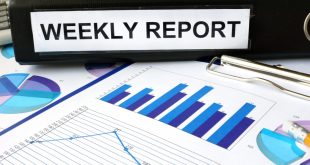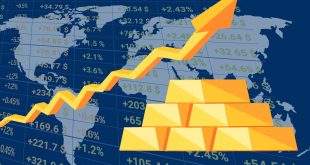European stocks posted modest gains on Wednesday, led by industrial miners, as investors tracked any signs of progress in U.S. trade negotiations with key global partners. With the July 9 tariff deadline looming, there was heightened attention on the potential for significant developments in global trade relations.
The pan-European STOXX 600 index rose 0.3% to 542.03 points by 07:10 GMT, with other major regional indexes also trading higher. Industrial miners led the charge, up by 1.4%, while banks advanced by 1.3%, indicating that positive sentiment was spreading across sectors.
U.S. Trade Talks and Tariff Deadline in Focus
U.S. President Donald Trump stirred market sentiment on Tuesday with comments regarding the ongoing trade talks with various countries. Trump stated that he was not considering an extension of the July 9 deadline for countries to negotiate trade deals. His remarks came amid rising concerns about tariffs and the potential impact on global trade. While expressing optimism about the possibility of a trade deal with India, Trump was less hopeful about reaching an agreement with Japan, citing ongoing trade disputes between the two countries.
The EU’s trade chief is expected to hold crucial negotiations this week in Washington, aiming to avert higher tariffs that could significantly impact European businesses. These talks come at a critical juncture, with the deadline for U.S. tariff impositions fast approaching.
Sector Performance and Economic Data
Among the sectors driving the positive performance of European stocks, industrial miners saw a 1.4% rise, reflecting optimism in the commodities sector. Banks also saw a healthy 1.3% increase, in line with the broader market sentiment.
On the economic front, the euro-zone unemployment data for May is expected later in the day, with investors closely watching the numbers for any signs of change in the region’s labor market.
U.S. Tax-and-Spending Bill Moves to House
In the U.S., the Senate Republicans narrowly passed Trump’s massive tax-and-spending bill on Tuesday, a key piece of legislation that now heads to the House of Representatives for potential final approval. The bill, which is expected to add $3.3 trillion to the U.S. national debt over the next decade, continues to be a point of contention, particularly among economists and fiscal conservatives who worry about its long-term impact on the country’s fiscal health.
The bill includes provisions for tax cuts, defense spending increases, and changes to social programs, all of which will have a significant effect on the U.S. economy. The Senate’s approval of the bill signals the beginning of a potentially contentious debate in the House, where lawmakers will review its provisions before it reaches Trump’s desk for signing.
Corporate Highlights: Spectris and KKR Deal
In corporate news, Spectris, a British scientific instruments maker, saw its stock rise by 5.1% after the company accepted an improved takeover offer from U.S. private equity firm KKR. This marks a significant move in the UK’s business landscape, as more companies in various sectors face increased pressure from private equity firms looking to expand their portfolios.
Market Optimism Amid Ongoing Trade and Fiscal Challenges
As European shares edged higher, investors remained focused on the dual challenges of global trade negotiations and fiscal policy, with particular attention on the U.S. trade tariff deadline and the passage of the tax-and-spending bill. With markets cautiously optimistic about trade deals, the overall sentiment suggests that investors are hopeful for some resolution before the July 9 deadline, but also wary of the potential for further disruptions.
 Noor Trends News, Technical Analysis, Educational Tools and Recommendations
Noor Trends News, Technical Analysis, Educational Tools and Recommendations





